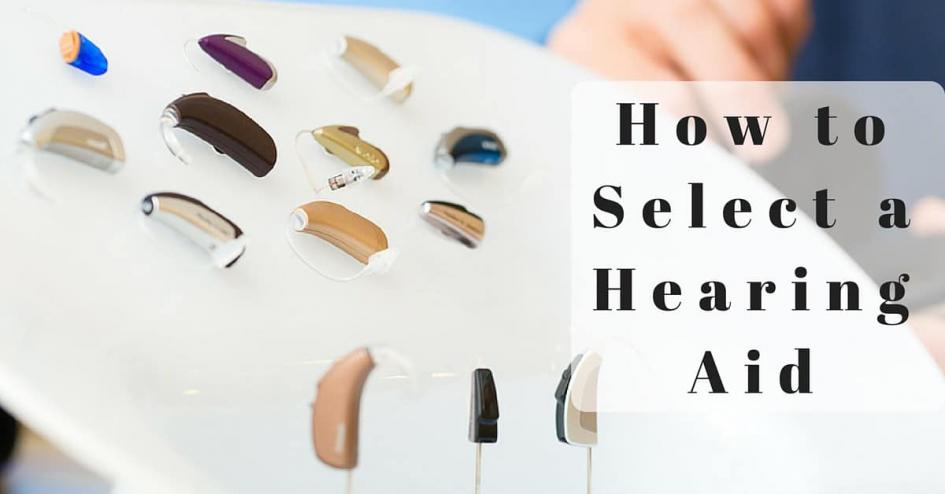
How to Select a Hearing Aid
Jul 22, 2016
How to Select a Hearing Aid
Hearing aids come in a dizzying array of styles, shapes and technologies, and it can be daunting trying to find the right solution. Different types of hearing aid will give you different benefits, depending on their size, power, design and features. Choosing a hearing aid also depends on your kind of hearing loss, your lifestyle and your budget. These key factors can help you narrow down your search for the best hearing aids for your needs.What kind of hearing loss do you have?
The first step is to have a hearing test, which will establish what level and kind of hearing loss you have. Your audiologist will explain what type of hearing aid suits your hearing loss, and whether you need a hearing aid for one ear or both. You’ll be able to try on different models and styles of hearing aid, so you can get an idea of what suits you.What style is best?
Hearing aids are worn in or behind the ear, and are available in several different styles. Your kind of hearing loss will determine which models are suitable for you. After that, the choice is yours:- Behind-the-Ear (BTE) hearing aids sit behind the ear and send sound through a small earmould into the ear
- In-the-Ear (ITE) sits inside your outer ear and your ear canal
- In-the-Canal (ITC) is a discreet hearing aid that fits completely into your ear canal.
- Completely-in-the-Canal (CIC) fits even further into your ear than ITC, meaning it’s almost invisible from outside.
What are your lifestyle needs?
You need to find a hearing solution that matches your lifestyle. Your daily activities, work, and hobbies should influence the choice you make. If you enjoy swimming, it would be a good idea to find a completely waterproof hearing aid with IP68 certification. If you’re teaching a class of noisy children, you need a hearing aid that can cope with complex sound environments. If you regularly attend lectures, meetings or religious events in a cavernous room, think about a hearing aid that provides good echo protection. Your audiologist will be happy to discuss your needs and show you options that may suit you.What’s your budget?
You can either get a hearing aid on the NHS, or buy one privately. If you have health insurance, it may help cover the cost. Hearing aids are available free of charge on the NHS, although the range of options can be limited. The current NHS hearing aids are smaller, lighter and more discreet than ever before, and are available in different colours. They generally offers the classic BTE style, although in some cases ITE, ITC and CIC hearing aids may be issued for clinical reasons. Going private means you have a much wider range of options. Hearing aids are not a one-size-fits-all solution, and having a choice means you’re more likely to find one that is best suited to your kind of hearing loss. Hearing aid manufacturers produce hearing aids at different performance (and price) points, so you can consider what features would be most useful and choose accordingly. Also factor in maintenance costs and battery replacements, and check if these are covered by your insurance. Hearing aids are an investment, and the engineering and technology that goes into them mean they can initially seem costly. Remember that they will make a real difference in your daily life, and with good care they generally last around five years – so it pays to invest wisely. If you need help choosing a hearing aid, we’re happy to help. Give us a call on 0131 220 1220 to make an appointment, or pop in to one of our centres.House of Hearing offers hearing care at four centres in Edinburgh, Galashiels, Perth, and St Andrews. Call us on 0131 220 1220 for more information.
Our Clinics
All House of Hearing clinics are in town centre locations and accessible to public transport and parking. Home visits also available if mobility is an issue.


.png)
.png)
.png)

.png)
